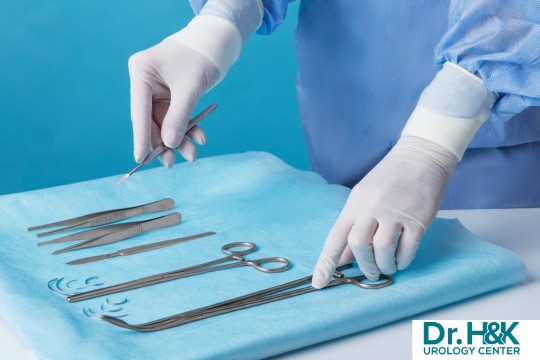#renal transplant
Explore tagged Tumblr posts
Text
Overcoming End-Stage Renal Disease with Kidney Transplantation: A New Lease on Life

Kidney transplantation serves as a lifeline for individuals struggling with end-stage renal disease (ESRD) or advanced kidney dysfunction. This transformative procedure offers the chance for improved health and a better quality of life for those facing kidney failure. At Miart, we specialize in advanced kidney transplant services. In this blog, we will explore the complexities of kidney transplantation, including its overview, types, causes, recent advancements, and a balanced discussion of its benefits and drawbacks.
Kidney transplantation involves implanting a healthy kidney from a living or deceased donor into a recipient whose kidneys can no longer function properly. This surgery is regarded as the most effective long-term solution for end-stage renal disease (ESRD), offering recipients the chance to restore normal kidney function and lead a more active, healthier life.
Types of Kidney Transplants
Living Donor Transplant: A kidney is donated by a living person, usually a family member or close friend.
Deceased Donor Transplant: The kidney comes from a deceased donor, typically someone who has signed up for organ donation or whose family consents to donation after death.
Causes of Kidney Transplantation
High Blood Pressure: Chronic hypertension causes damage to the small blood vessels in the kidneys and reduces their ability to function properly. Prolonged uncontrolled high blood pressure is a common cause of kidney disease.
Genetic Conditions: Inherited genetic disorders can lead to kidney problems, making transplantation necessary. Polycystic kidney disease (PKD) is an example of a genetic condition resulting in kidney failure.
Autoimmune Diseases: Autoimmune diseases, like lupus and vasculitis, may lead to inflammation and kidney damage. In some cases, this damage can progress to the point where transplantation is the best treatment option.
Chronic Kidney Disease (CKD): The primary cause for many kidney transplants is the progression of chronic kidney disease (CKD) to End Stage Kidney Disease. Conditions such as diabetes and high blood pressure can contribute to the gradual deterioration of kidney function, leading to the need for transplantation.
Diabetes: Uncontrolled diabetes is a risk factor for kidney disease. High blood sugar levels may damage blood vessels in the kidneys and impair the ability to filter waste from the blood over time.
New Developments in Treatment
Recent advancements in kidney transplantation include:
Robotic-assisted Surgery: Robotic-assisted surgery has been introduced to enhance the precision of the transplant procedure in properly selected patients. This minimally invasive approach can lead to smaller incisions, quicker recovery times and reduced pain for recipients.
Stem Cell Therapy: Research in stem cell therapy is exploring the use of stem cells to promote kidney regeneration and reduce the risk of rejection. While still in the experimental stage, this approach holds promise for improving long-term outcomes and reducing dependence on immunosuppressive medications.
Desensitization Therapies: These therapies aim to overcome barriers related to incompatible donors. They involve techniques to reduce the recipient's immune system response, allowing transplantation even when there are blood type or antibody mismatches.
Organ Preservation Techniques: Advanced methods for preserving donor kidneys before transplantation have been developed. These techniques optimize the organ's condition, ensuring better functionality and reducing the risk of complications after transplantation.
Precision Medicine: Precision medicine is advancing in kidney transplantation - tailoring immunosuppressive medications to the specific genetic and immune profile of the recipient helps minimize side effects and improve the overall success of the transplant.
Benefits of Kidney Transplantation
Freedom from Dialysis: Transplantation eliminates the need for frequent and time-consuming dialysis sessions.
Potential for Living Donor Transplant: Living donor transplants offer the advantage of a quicker and more controlled process.
Reduced Healthcare Costs: Despite initial costs, kidney transplantation can be more cost-effective than long-term dialysis in the long run.
Improved Quality of Life: Transplantation often restores normal kidney function, allowing recipients to lead more active and fulfilling lives.
Long-term Survival: Kidney transplantation is associated with a higher long-term survival rate compared to long-term dialysis.
Drawbacks of Kidney Transplantation
Limited Availability of Organs: The demand for kidneys far exceeds the supply, leading to long waiting times for suitable donors.
Surgical Risks: Like every surgery, there are inherent risks involved in the transplantation procedure.
Financial Costs: While cost-effective in the long term, the initial expenses of transplantation, including surgery and lifelong medication, can be significant.
Risk of Rejection: The recipient's immune system may recognize the transplanted kidney as foreign and attempt to reject it.
Immunosuppressive Medications: These medications, while essential for preventing rejection, can lead to side effects and increased susceptibility to infections.
Kidney transplantation marks a significant breakthrough in medical science, offering hope to individuals battling kidney failure. While it provides many benefits, it is essential to recognize the potential risks and ongoing challenges tied to this transformative procedure. With advancements in renal transplants in Kerala, Miart continues to lead the way, emphasizing the importance of organ donation and groundbreaking research in the field.
0 notes
Text
Laparoscopic Surgery vs. Robotic Surgery: Redefining Precision and Efficiency

In the world of contemporary surgery, two cutting-edge techniques take center stage for their accuracy and minimally invasive approach: laparoscopic surgery and robotic surgery. Both methods have transformed surgical care by providing patients with quicker recovery periods, less discomfort, and shorter hospital stays when compared to conventional open surgery. Despite their similarities, notable distinctions between these techniques influence their efficiency and performance. This article delves into the intricacies of laparoscopic and robotic surgery, evaluating their effectiveness across different procedures. For those seeking the best laparoscopic surgeon in Kerala, Dr. Harigovind Urology Center offers expert care, specializing in both laparoscopic and robotic surgical techniques.
Laparoscopic Surgery:
Laparoscopic surgery, often referred to as minimally invasive surgery (MIS) or keyhole surgery, involves creating tiny incisions in the abdomen to insert a camera and specialized surgical tools. The camera delivers a high-resolution view of the operative area, enabling the surgeon to carry out the procedure with accuracy. This technique is frequently employed for surgeries like gallbladder removal (cholecystectomy), appendix removal (appendectomy), and hernia repairs.
A major benefit of laparoscopic surgery is its minimally invasive approach, leading to smaller cuts, decreased blood loss, and quicker recovery compared to conventional open surgery. Patients generally endure less discomfort and scarring, enabling them to resume their daily routines more swiftly.
Robotic Surgery:
Robotic surgery elevates laparoscopic techniques by utilizing a robotic system to aid the surgeon. From a console, the surgeon operates robotic arms, benefiting from a 3D visualization of the surgical field and enhanced precision and dexterity beyond what traditional laparoscopic tools can achieve. This advanced method is employed in various procedures, such as prostate removal (prostatectomy), uterine removal (hysterectomy), and surgeries involving the colon and rectum (colorectal surgery).
A significant advantage of robotic surgery is its capability to handle intricate procedures with heightened precision and control. The robotic arms can execute movements beyond the limits of human hands, enabling finer and more precise actions. This can lead to enhanced patient outcomes, including fewer complications and better long-term results.
Efficiency Comparison:
When evaluating the efficiency of laparoscopic and robotic surgery, multiple factors must be considered. A significant aspect is the learning curve linked to each method. Although laparoscopic surgery demands specific training and expertise, robotic surgery typically involves a more challenging learning process due to the intricate nature of the robotic system. Surgeons must complete comprehensive training to gain proficiency in operating the robotic console and arms.
Another important aspect to examine is the expense associated with each approach. Robotic surgery generally demands a substantial investment in equipment and upkeep, making it costlier than laparoscopic surgery. Nonetheless, certain research indicates that the higher upfront costs of robotic surgery might be balanced by shorter hospital stays and quicker patient recovery times.
When it comes to results, both laparoscopic and robotic surgeries have demonstrated effectiveness in delivering positive outcomes for patients. However, some research indicates that robotic surgery may provide benefits in specific procedures, like prostatectomy, where the precision and flexibility of the robotic system can contribute to improved results.
Summary
In conclusion, both laparoscopic surgery and robotic surgery are highly efficient techniques that have revolutionized the field of surgery. While laparoscopic surgery is more established and widely used, robotic surgery offers distinct advantages in terms of precision and control. The choice between the two techniques depends on several factors, including the surgeon's experience, the complexity of the procedure, and the patient's specific needs. For those seeking the best laparoscopic surgeon in Kerala, Dr. Harigovind Urology Center offers expert care in these advanced surgical techniques. As technology continues to evolve, both laparoscopic surgery and robotic surgery are poised to play an increasingly vital role in the future of surgery, continually redefining efficiency in the operating room.
0 notes
Text

Meaning, Treatment, & Cost Of Kidney Transplant Operation at Livlong
Kidney transplant operation is a surgical operation that replaces a sick or damaged kidney with a healthy kidney from a donor. Visit Livlong for more information.
#renal transplant#renal transplant surgery#kidney transplant surgery#kidney transplant operation#kidney transplant surgery cost
0 notes
Text

Meaning, Treatment, & Cost Of Kidney Transplant Operation at Livlong
Kidney transplant operation is a surgical operation that replaces a sick or damaged kidney with a healthy kidney from a donor. Visit Livlong for more information. https://livlong.com/blogs/surgery/kidney-transplant-surgery
#renal transplant#renal transplant surgery#kidney transplant surgery#kidney transplant operation#kidney transplant surgery cost
0 notes
Text

Are you looking for the Best kidney transplant surgeon in Hyderabad take an appointment with a DR PRANITHRAM, The Best nephrologist in Hyderabad. DR PRANITHRAM Renal Care Centre is recognised as one of the Best centres for diagnosing and managing Renal Transplant surgery. Our doctors lead the way in treating kidney disease patients all over Hyderabad. Please schedule an appointment with us at any time.
1 note
·
View note
Text
#nefron#nefron kidney care#renal transplant#best renal transplant in siliguri#best kidney care#kidney specialist doctor in siliguri
0 notes
Link
This Blog provides a comprehensive guide to help patients and their families understand the benefits and risks associated with renal transplantation. The page discusses the success rates, potential complications, and post-operative care involved with this life-changing procedure.
#Risks Kidney Transplant#renal transplant#Advantages Kidney Transplantation#kidney transplant#kidney transplant specialist#kidney transplantation#kidney transplant physician
0 notes
Text
nsaids go to your kidneys not your liver that’s why drinking with them isn’t advised bc of your stomach. tylenol causes a buildup of a metabolite when drinking that is actually toxic.
Every time I see another ibuprofen post on this site I'm like STOP
STOP
Stop.
Take that after a meal. Take it with a big glass of water. Don't take it on an empty stomach EVER. Don't take it with alcohol. You will destroy your stomach. You will end up with an ulcer. You will vomit blood. I'm not exaggerating.
Yes, you. Yes, it will happen to cute little you. With your cute little bottle of miracles. Ibuprofen really does that to your body.
Love, an adult person over 35 who can't take NSAIDs anymore
#there is one thing my toxins proff emphasized: don’t take tylenol for hangovers or when drinking#like do i remember the toxin off the top of my head? no#but i know it’s serious#as for the nsaids#i have a kidney transplant i can never take them again because they put strain on the singular functioning kidney i have#like when i found out i had end stage renal disease i was told to completely avoid the stuff.
74K notes
·
View notes
Text

Kidney failure occurs when the kidneys lose their ability to filter waste, leading to serious health complications. Early detection is crucial to prevent further damage. Dr. Sandeep Morkhandikar, a leading nephrologist at Fertiprotect and Superspeciality Clinic, Pune, specializes in advanced kidney care and treatment.
#Best nephrologist in Pune#Top kidney specialist Pune#Pune nephrology doctor#Renal specialist Pune#Kidney doctor in Pune#Nephrology clinic Pune#kidney transplant in pune#Dialysis specialist in Pune
0 notes
Text
Renal Sciences & Kidney Transplantation Centre |Yashoda Hospital Ghaziabad
The Centre of Renal Sciences at Yashoda Hospital – one of India’s largest, private sector tertiary care hospitals, comprises of Nephrology, Urology and Renal Transplant Management working together as a cohesive unit. The Centre is one of the best kidney hospital in delhi which boasts of a highly experienced team of internationally recognised Nephrologists and Urologists, who are experts in all aspects of diagnostic and therapeutic procedures. They are deeply committed to offering the best clinical care to the most complex of case related to both adult and paediatric Nephrological and Urological conditions.
#Kidney Transplantation Centre#Kidney Transplantation Hospital#yashoda hospital#yashoda hospital ghaziabad#healthcare#yashoda healthcare#best hospital in ghaziabad#yashoda#yashodahospitalghaziabad#paediatric#Nephrological#best kidney hospital in delhi#best kidney hospital in ghaziabad#best kidney hospital in india#renal sciences#kidney transplant#kidney disease#kidneyhealth#kidneystones#yashodahealthcare#Yashoda Hospital Ghaziabad
0 notes
Text
Renal Transplant in Kerala: A Patient’s Guide to Preparation, Procedure, and Aftercare

In a kidney transplant, a healthy kidney from a deceased or living donor is surgically implanted into a patient whose kidneys no longer function normally.
Just below the rib cage, on either side of the spine, are the kidneys, two bean-shaped organs roughly the size of a fist. Their primary job is to produce urine, which filters and eliminates waste, minerals, and fluid from the blood.
Hazardous amounts of fluid and waste build up in the body when the kidneys lose their capacity to filter, which can cause blood pressure to rise and lead to kidney failure (end-stage renal disease). About 90% of the kidneys' capacity to operate normally is lost in end-stage renal illness. About 90% of the kidneys' capacity to operate normally is lost in end-stage renal illness.
Common causes of end-stage kidney disease include:
Diabetes
Chronic, uncontrolled high blood pressure
Chronic glomerulonephritis — an inflammation and eventual scarring of the tiny filters within the kidneys
Polycystic kidney disease
People with end-stage renal disease need to have waste removed from their bloodstream via a machine (dialysis) or a kidney transplant to stay alive.
What are the Risks?
Kidney transplant surgery carries a risk of significant complications, including:
Blood clots and bleeding
Leaking from or blockage of the tube that links the kidney to the bladder (ureter)
Infection
Failure or rejection of the donated kidney
An infection or cancer that can be passed on from the donated kidney
Death, heart attack and stroke
Renal transplant treatment in Kerala is exemplified by the expertise at Dr. Harigovind Urology Center, a leading facility in the region. The center specializes in advanced kidney transplantation procedures, offering personalized care and comprehensive support throughout the process. With a skilled team of surgeons and state-of-the-art technology, Dr. Harigovind Urology Center ensures optimal outcomes for patients. From pre-operative assessments to post-transplant care, the center is dedicated to enhancing the quality of life for kidney transplant recipients.
0 notes
Text

#kidney disease#kidney stone specialist#kidneyhealth#kidney diet#kidneys miserable taste#kidney transplant#chromophobe#renal#cancer
0 notes
Text
0 notes
Text
Abo Incompatible Renal Transplant in Hyderabad
Renal transplant is a treatment option for end-stage renal disease. The kidney transplant patient waitlist and the demand for organs is growing every year as the kidney donor acceptance has reduced in many centres and also an increase in the incidence of CKD in view of increased prevalence of comorbid conditions.
ABO blood group incompatible renal transplant refers to a kidney transplant between a donor and recipient who have different blood types. Traditionally, ABO blood group compatibility was considered a mandatory requirement for transplantation. To minimize the waitlist for kidney transplants, renal transplantation across the incompatible blood groups looks encouraging and innovative with the availability of more potent immunosuppressive therapies.
This blog explains an overview of ABO blood group kidney transplantation and complications and some methods to overcome the barrier.
1 note
·
View note
Text

Renal Transplant At Hiranandani Hospital
0 notes